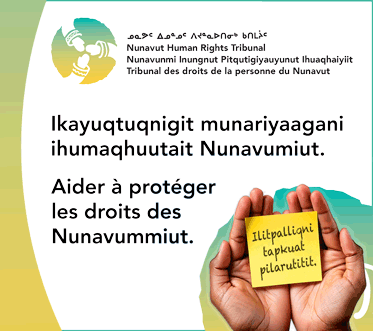Indigenous incarceration rate “a travesty,” Canada’s prison watchdog says
Proportion of Indigenous people in federal custody headed for one in every three inmates
This graph shows the percentage of the federally incarcerated population that identifies as Indigenous for each year since 2001. The proportion of the incarcerated Indigenous population has steadily increased from 17.6 per cent in 2001 to 30.4 per cent in 2020. (Office of the Correctional Investigator of Canada)
The proportion of Indigenous people doing time in Canadian prisons is climbing so rapidly that Indigenous people will soon account for one in every three federal inmates, the Correctional Investigator of Canada, Dr. Ivan Zinger, said on Jan. 21 in a statement.
Zinger, who acts as an ombudsman for federal prison inmates, was appointed to the position in January 2017.
At that time, people of Indigenous ancestry represented about 25 per cent of the total inmate population in Canada, he said.
But only three years later, that proportion has climbed past 30 per cent.
“On this trajectory, the pace is now set for Indigenous people to comprise 33 per cent of the total federal inmate population in the next three years,” Zinger said.
Given that Indigenous people make up only about five per cent of Canada’s population, an Indigenous incarceration rate of more than 30 per cent is a grossly disproportionate number.
For Indigenous women, the number is even worse: 42 per cent of women inmates in Canadian prisons are Indigenous.

This graph compares the Indigenous and non-Indigenous compositions of the federally incarcerated population since 2009. The graph shows that the percentage of the federally incarcerated population that identifies as non-Indigenous has decreased from 79.5 per cent in 2009 to 69.9 per cent in 2019. At the same time, the percentage of the population identifying as Indigenous has increased from 20.5 per cent in 2009 to 30.1 per cent in 2019. (Office of the Correctional Investigator of Canada)
And that is happening despite the multiple findings of royal commissions, national inquiries, interventions by the courts, and multiple promises from numerous political leaders.
But over the years, no government of any political stripe has been able to reverse the trend.
“The Indigenization of Canada’s prison population is nothing short of a national travesty,” Zinger said.
Although he acknowledges that many of the causes of Indigenous overrepresentation in prisons lie outside the criminal justice system, much of the blame falls on the Correctional Service of Canada.
“CSC needs to accept its share of responsibility, recognizing that tweaks around the edges of the system simply won’t cut it,” Zinger said.
“The service needs to make dramatic changes to reduce re-admissions and returns to custody, better prepare Indigenous offenders to meet earliest parole eligibility dates, and more safely return Indigenous offenders to their home communities.”
And to make that happen, the federal government must lead and direct those efforts, Zinger said.
“It is not acceptable that Indigenous people in this country experience incarceration rates that are six to seven times higher than the national average. Bold and urgent action is required to address one of Canada’s most persistent and pressing human rights issues,” he said.





In other news, no issues at all with the aboriginal crime rate. Nope, not related.
Regardless of race, most people are in jail because of their
own criminal actions.
It ain’t rocket science !
Some do it for a place to sleep, and to get fed grub.
Canadian prisons are very cushy compared to some other
countries.
Stay on the right side of the law.
Over simplified, it’s much deeper then just saying stay on the right side of the law.
I found Chytaffa’s comment simple & straight forward and
right to the point.
Following this advice would do people no harm at all.
Yes I agree, following that advice would be great in a perfect world, but Canada is nowhere near perfect and this statistic shows it, with colonialism and the decades of mistreatment of indigenous people you can’t just say “stay on the right side of the law”.
I think more of you need to learn some history but unfortunately it doesn’t seem to be taught in schools right now but hopefully this will change further down the road,
No Canada is not perfect, nowhere is !
I know many people who have been to residential school, and
had no problem with it. Some did of course.
Many elders have told me of terrible living conditions before
the ” colonizer ” supplied food, medical, and housing, and
they were very grateful.
People rich or poor make their own choices in a free country.
Yes that is not the problem, the problem is the continued government policies, lack of infrastructure, healthcare, housing and education support, equity and equality.
Canada is far from being perfect, but pretends to be, sugar coats it and looks the other way instead of dealing with what is wrong with it.
“I know many people who have been to residential school, and
had no problem with it”
So how many do you know? 2, 4, 10? Out of how many hundreds of thousands?
Trying to make colonizers sound good hahaha laughable.
Ok boomer time to move alone, obviously you have no clue about indigenous people and what we went through.
I think it would be great if all people who went to the govt.
Residential School were encouraged by their provincial and
territorial governments to tell their stories and have them
published in a book.
Used to be NU Inuit would do soft crimes in Aug/Sept, court in Oct, go Ft Smith or YCC for the winter. Guaranteed 3 hot meals a day & warm place to stay and out in Feb/Mar. They had it figured out good. But now with booze & hard drugs and guns Inuit out of control. I don’t know the answer??
How many times does it have to be said that Indigenous people who are educated and skilled for work in the high-tech economy seldom get into trouble—suicide or disappearance. Or jail?
Former MLA for Iqaluit, former education minister and now Nunavut’s senator Dennis Patterson said in the NWT legislature on November 15, 1979 that he was extremely concerned about the startling rate at which young people were taking their own lives in his constituency. Nine people had committed suicide in one year. He attributed this shocking development to his belief that the young were “angry at a society where there is no hope for them.” His fear was that Iqaluit’s incidence of juvenile delinquency, drug use, and suicide would be “just the beginning of what could occur across the North.”
Patterson presided over education for second class citizenship, and for the troubles he correctly identified. Indigenous\ leaders in Nunavut and elsewhere carry forward his myth that young people can get a healthy and rewarding life find with speaking Inuktitut their only qualification.
I’m more concerned about the number of alcohol related deaths and suicides. At least the ones in jail are alive and fed. The rising and lowering of flags in inuit communities, requires a full time team, as well as coffin makers , grave diggers, grief councillors. When will some government report address these unacceptable circumstances.
Inter generational trauma from residential schools, mistreatments from the government and colonial society, forced relocations, poor living standards, drinking water and so on.
The attempted cultural genocide, something is terribly wrong with Canada with all of this happening and people still choose to look away or try to pin it on something else.
This country will not evolve and improve when the colonizers still think in that matter. Need more education on the atrocities that happened to indigenous people to fully understand why this is going on today, not the hear say from family and friends. It’s not looking good for Canada.
I know about past trauma, yes I do, I was in that. But I made up my mind not to pass it on to my children. I’m older now, and my commitment still stands. If I can do that, why can’t it be done with others. If I commit crime because of what was done to me, that’s my problem, and I have no excuse to use. Human beings are greater than that. We have choice.
I am happy for you that you can make the choice to improve your life and make it better for your family, every person deals with trauma differently and the trauma is different then what you may have experience.
Some (too few) are able to move on and some get the help and services to help them move on, we do not have enough services for mental health and this is a huge problem. It really needs to be looked at further and changes and services need to be in place. I wish you continued success in your journey.
No one has any right to cause injury to another person. There no prerequisite for that either. It doesn’t matter what trauma you faced, if you injure another person, you will, or at least you should be arrested for that, and prosecuted. If you are not able to control your behaviour based on what happened to you in the past, then you need big time help, but no excuse in the mean time to carry you troubles to your kids, your family, friends , community. You will lose all your freedom for that. People that make bad choices , or those that cannot choose for themselves , needs to be put away.
Yes we all agree that no one has the right to cause injury to another person, no one said other wise.
The question is why is it happening? Why is the level so high of indigenous people going to jail?
There must be a reason why one group of people are going to jail at a much higher rate then another group.
How can we help? How can we improve things!
There is an elephant in the room here,
While very difficult to pinpoint exactly, estimates are that roughly 50% of all prison inmates suffer from Fetal Alcohol Syndrome. There is no denying how big a problem this is, and that there is a direct relationship between FASD and incarceration.
In the largest study done of Inuit mothers (2011) 36% of pregnant mothers used marijuana, 61% admitted to drinking while pregnant and amazingly enough, 38% of pregnant mothers voluntarily admitted to “binge drinking” while pregnant.
You cannot have an honest discussion about this topic, without dealing with the impact of FASD on these numbers.
Colonialism is so simple. Just impose your own laws on Indigenous people without consultation or consent and then tell people that if you violate these laws, you go to jail. Now, it has been over 50 years that we know about the overrepresentation of Indigenous people in jails. We know how to address this issue (just read the report of the Royal Commission on Aboriginal People of 1996) but the colonial governments shelved the report that cost Canadian taxpayers millions of dollars and, guess what, the overrepresentation of Indigenous people in prisons is getting worse.
Absolutely true, and such has been the way of humanity and
it’s ways for many thousands of years, and we still have it
today.
I was once told by an historical anthropologist, that the Incas
were just as brutal to other Indian tribes, as what the Spanish
were.
Afros, Euros, Asias, & Abos. We are all the same.
I guess that makes it ok in today’s age?
No, but it is very clear to many that some simply don’t grasp context. Context is an important thing.
Doing what is right is even more important, instead of following people who do wrong.